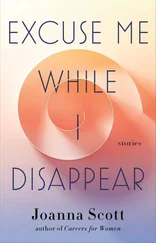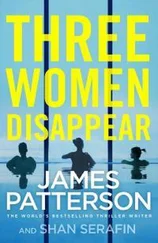Most people have an intuitive sense that they act freely and that others do so too. Yet if these same people seriously consider Laplace’s demon and the way the universe is constructed, they normally conclude that it is impossible for us to possess free will. And that it may very well be possible that what we so convincingly experience as our own freedom is in reality an illusion.
The philosophers on the following pages are some of the most influential in the modern debate on the subject, and they represent a broad spectrum of opinions. The following diagram provides an overview of their positions.
The individual possesses free will
Everything is predetermined (Determinism)
Compatibilism, or Soft DeterminismFree will can exist in a deterministic universe
(Daniel Dennett)
(Harry Frankfurt)
Everything is not predetermined (Indeterminism)
Libertarianism
Free will cannot exist in a deterministic universe, but the universe is not deterministic
(Robert Kane)
(Peter van Inwagen)
The individual does not possess free will
Everything is predetermined (Determinism)
Hard Determinism
Free will cannot exist in a deterministic universe, therefore the individual has no free will
Everything is not predetermined (Indeterminism)
Hard Incompatibilism 1 )
The individual has no free will, regardless of whether the universe is deterministic or not
(Galen Strawson)
(Derk Pereboom)
LIBERTARIANISM
Within libertarianism, there are two major strands:
1. Metaphysical libertarianism. The individual possesses a soul independent of the physical universe and its laws of nature. This strand is sometimes bound up with religious belief.
2. Science-based libertarianism. This strand has found support in the field of atomic physics — specifically in Bohr’s quantum theory of subatomic particles, which states that not everything in the universe is determined. Electrons move randomly and unpredictably. Questions then arise about whether the movement of electrons can have any effect on human thought, and
1. Hard incompatibilists hold that the question of whether the world is deterministic or not has no bearing on the question of free will. In the diagram, this position should therefore cover both of the bottom fields.
Everything before us. Nothing behind us. Nothing, nothing, nothing! Bernard and I are twenty-one, we’re beautiful: on the street people turn around behind us, the smooth skin on his chest almost without hair, my breasts taut against him. We talk at the same time and so quickly, even folks in their thirties can’t understand us. We both moved from home to the city a few years ago, and at night we leap fences into parks and look each other in the eye, letting the sounds and gaps in our voices rub up against each other till they merge into one.
And then we sing loud. Really loud! Because everyone at my school’s gone home. And if anyone can hear us anyway from the basement corridor that goes past the teachers’ small break room, with its cot, its large yielding cushions and pyramid poster, they’ll never be able to guess who’s singing and giggling and moaning and making the cot creak.
For I am the very picture of virtue. Have always been. The door here is locked. And if they can guess anyhow, we don’t care, because life stretches out before us as long as Bernard’s hard-on keeps pounding away inside me. The fall from his nostril to his upper lip, the valley between earlobe and cheek, the piers of his lashes. I grasp his lower back more tightly. Our faces are so close that we’re singing into each other’s mouth:
Twenty-one years old
And burning gas on
Hans Christian Andersen Way
We put the seat back
The window down
The volume up
Let summer air in
Just me and him
Our skin it glistens
And damn it’s hot
We float up from the break room in the basement, we dive down from the cloudless sky toward the school’s squat buildings, we swim naked in Lake Farum surrounded by all our twenty-one-year-old friends. Slender tanned bodies melt into the dark. Pale buttocks catch the light in the blackness and bounce around on the bank, appear and disappear. Like us. We appear and disappear, Thursday, Friday, come and go, Saturday, Sunday, his balls against my inner thighs. Appear and disappear.
Down the basement corridor and up the school stairway, letting the summer air in. Damn, it’s hot.
In the parking lot behind my school, I point.
“What?” he asks.
“Zipper!”
He tugs it up and laughs too.
We don’t give a shit.
And I just know that Bernard and Niklas will be great together, as soon as Niklas gets over the shock of it. Bernard can get along with anyone. I can see them before me, playing badminton in our new yard, bent over Niklas’s laptop and sharing computer tips, sitting by themselves in the twilight and talking about which photographers mean the most to them.
And what about Bernard’s boys? Will I be able to get along with them? He’s shown me pictures and e-mails. They’ll still want their sick mother — just like Niklas will still want his sick father. The wrath; the desire to protect. But his boys are grown now. Just like Niklas. I’ll figure something out; we’re canoeing on the Mølle River. We live in Bernard’s house, and Lærke’s at a home where trained caregivers can see to her. She’s thriving there. And my divorce from Frederik is easy; from a legal point of view, I get everything that remains behind — the money, the car, the furniture — since the bank determined exactly what his half was and took it. But I want to be nice; I’ll give him something or other that I don’t have to.
All the happy plans buzz around in my head night and day. And they’re buzzing there as Bernard and I cut across the parking lot behind the school on our way home from the break room. He gets a text; his alert sound is the sea, the crashing of a wave.
“Lærke was helping make dinner and knocked the milk over,” he says. “I’ve got to buy some on my way home from the office.”
He says this with sorrow in his voice, as if only in this instant does he realize what he’s done. If only he’d taken himself in hand and resisted temptation even longer! If only he could last another eight years without enjoying sex, intimacy, and equal give-and-take with a healthy woman. Then everything would be as it should in their little family.
Eight years! I think again. Eight years with a wife who has multiple handicaps, eight years before he’s had the least little something on the side. And it hasn’t been due to any lack of libido, I now know.
I want to say something to alleviate his suffering: If you’re doing well, Bernard, it’s better for her . Or something along those lines.
But I always have the sense that if I say one wrong word about Lærke, it’ll be over. He lights up when things are going better with her — and nothing can make him more unhappy than when she’s having a hard time. He’ll never leave her. And I accept that. It’s what makes him such a remarkable human being. I don’t want to destroy anything; I just want to make their lives better. To give him renewed energy to be an even better man.
“I know it must be hard for you” is the only thing I say.
• • •
Saturday morning, I’m wakened by Frederik bounding up the stairs and shouting, “It’s saved! Saved! It worked!”
Читать дальше
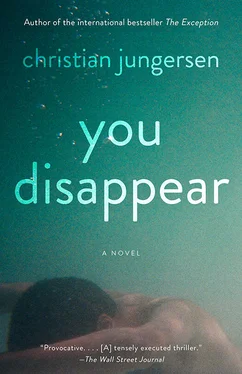
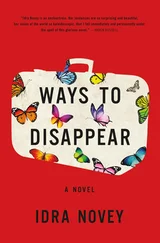
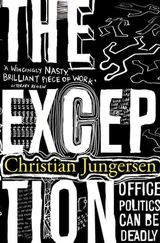
![Ally Carter - [Gallagher Girls 01] I'd Tell You I Love You But Then I'd Have to Kill You](/books/262179/ally-carter-gallagher-girls-01-i-d-tell-you-i-lo-thumb.webp)
